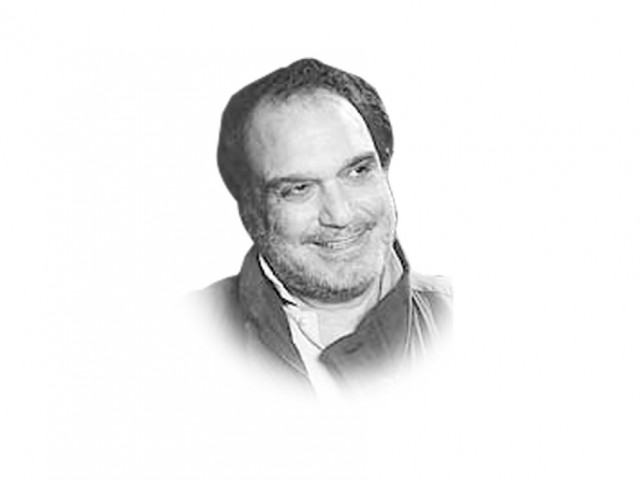Was Jinnah secular?
The August 11 speech is clearly a secular manifesto issuing out of the mouth of the Father of the Nation.

Was Jinnah secular?
Javid Iqbal was clear that what Pakistan is now was not what Jinnah had thought of. The word ‘secular’ put off the TV host who insisted that ‘secular’ was the opposite of ‘Islamic’. He even once erroneously equated ‘secular’ with ‘communist’, not knowing that an atheist state cannot be secular. Javid Iqbal said hard Islam was not the project of Jinnah: The Islam of hudood and blasphemy laws was imposed by General Zia.
He even named Dualibi as the Arab scholar who was sent to Pakistan by Saudi Arabia to impose the laws that Pakistan was averse to enforcing. The fact is that the 1980 Zakat & Ushr Ordinance, imposed by General Zia on Sunnis and Shias, was framed by Dualibi in Arabic. Javid Iqbal clearly said that moderate and liberal elements were silent because they feared harm at the hands of extremist forces. He equally despaired of politicians.
He said that only the ibadat (prayer rituals) were unchangeable in Islam; muamilat (affairs) had to change in tune with the times. One reason Islamisation did not improve the Pakistani character was the state’s retrogression towards laws that were no longer compatible with modern times. He referred to an effort made by late MNA MP Bhandara who, as a minority representative, wanted the August 11, 1947 speech of Jinnah incorporated into the Constitution.
The August 11 speech is clearly a secular manifesto issuing out of the mouth of the Father of the Nation. The secularists lean on it; the others think Jinnah still meant a state based on Sharia. One historian even went as far as to say that Jinnah had become ‘infirm of mind’ when he spoke on August 11.
Saleena Karim in her book Secular Jinnah & Pakistan: What the Nation doesn’t Know (Paramount 2010) has probably tackled the case most thoroughly in defence of those who reject the secular label. She has dug up an interview that Jinnah gave to a Reuters’ journalist on May 21, 1947, which was used by chief justice Muhammad Munir in his book From Jinnah to Zia (1979) to infer that Jinnah had wanted a secular state.
She has dug up what Jinnah had really said: ‘But the Government of Pakistan can only be a popular representative and democratic form of government. Its parliament, and cabinet responsible to the parliament, will both be finally responsible to the electorate and the people in general without any distinction of caste, creed or sect, which will be the final deciding factor with regard to the policy and programme of the government that may be adopted from time to time’ (p.31).
She writes: “Instead of calling the proposed Pakistan a ‘modem democratic state’”, Jinnah says only that it will have a “democratic form” of government. He was actually averse to imitating “modern” (read: contemporary) democracy as a political system, considering it a failure’. She thinks it contains a presumed reference to a non-secular state. One could also conclude from this that people may democratically decide to have a non-secular Islamic state with a Sharia.
It is up to the reader to decide whether the argument for a non-secular state is convincing or not, on the basis of what Jinnah is supposed to have said.
Published in The Express Tribune, March 20th, 2011.












COMMENTS
Comments are moderated and generally will be posted if they are on-topic and not abusive.
For more information, please see our Comments FAQ